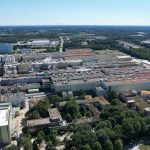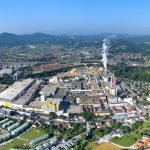The key vision of Stora Enso’s pilot plant is to assess the chemical process and provide sample material so as to gain further know-how about market needs and product demands.
November 5, 2022

Stora Enso, a globally leading provider of renewable products, is all set to launch a new bioplastics pilot plant in the Flanders region in Belgium. This will bring a new bioplastics production technology and it is ready for implementation at an industrial scale.
In the future, bio-based materials will be crucial for various packaging solutions. In December 2019, the Finland-based Company announced its plans of investing EUR 9 million in the development of a pilot facility enabling the production of bio-plastics.
Watch: IVAX Paper Chemicals Interview
With the new plant, Stora Enso intends to test FuraCore®, its breakthrough technology to produce furandicarboxylic acid (FDCA), which is a major building block of bioplastic PEF (PolyEthylene Furanoate).
The firm has completed the construction of the plant while the commissioning is underway. Now, the initial production is expected to start soon, and after that, things will quickly move towards regular production of FDCA, and PEF with partners.
According to Mr. Dirk den Ouden, VP Emerging Business, the next step is to ensure everything goes smoothly and to collect data for the next scale-up. As and when samples are available in large quantities, Stora Enso will work with partners and potential customers on validating the FuraCore® products in a range of applications. “We’ll soon have our pilot fully up and running, producing material for testing,” says Mr. den Ouden.
Also Read: Stora Enso to Divest its Maxau mill site to Schwarz Produktion
The key vision of the pilot plant is to assess the chemical process and provide sample material so as to gain further know-how about market needs and product demands. Firstly, the pilot facility will utilise industrially available sugar (fructose) to produce high-value chemicals and materials for application testing. In the future, the process will be done on sugars extracted from wood and other non-food-based biomass.



